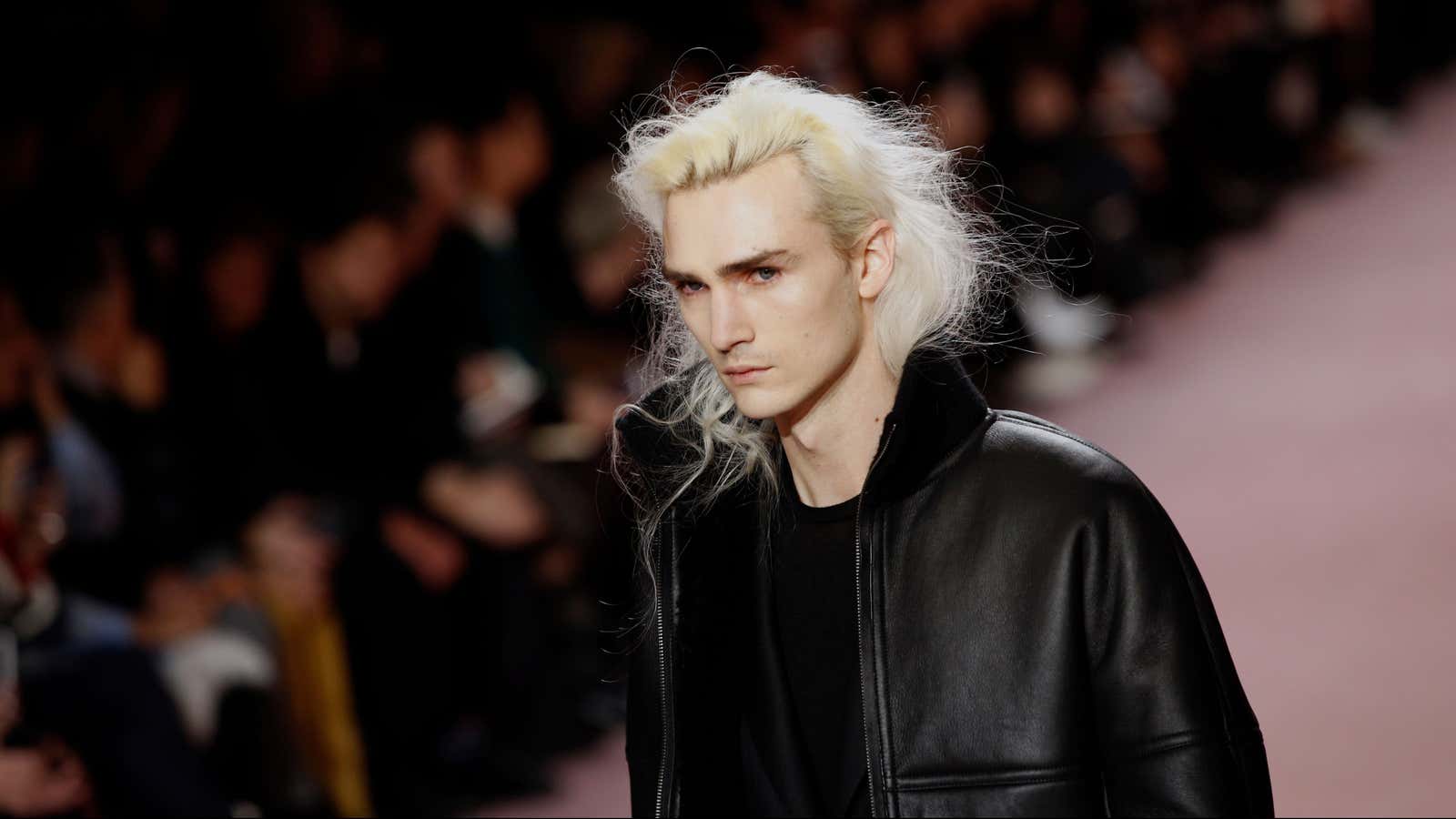Talk around millennials can make the generation sound more than a little alien.
“The digital natives would be radically different from the humanity that came before them, and we would have to decipher their strange habits like an occult code,” is how Antoine Arnault, CEO of men’s luxury label Berluti, framed the perspective on millennials at the WWD Apparel + Retail CEO Summit in New York on Oct. 30.
“Frankly I’m not so sure of it,” he added.
Arnault is of the Arnault family that controls LVMH, the mega luxury conglomerate that owns brands such as Louis Vuitton, Celine, and Fendi. For nearly 20 years, he pointed out, he’s been “a privileged observer of new trends in the luxury market.” Like other luxury executives, he knows a generational shift is taking place in the market.
Millennials will account for 40% of global luxury spending by 2025, management consulting firm Bain & Company estimates. Experts and other onlookers believe their rise is among the forces reshaping the industry, that heritage means little (pdf) to them, that they prefer streetwear and casual clothes to hand-tailored jackets and couture, and measure everything in Instagram likes.
But Arnault said companies shouldn’t be so quick to abandon their traditions to pander to every new taste—especially Europe’s luxury houses, some of which have been around a century or more. “We manage longevity,” he said. In his view, millennials aren’t so different from the generations that preceded them—except for one thing.
“Millennials, as others, want creative, durable, desirable, and beautiful products,” he said. “But they do add a new criteria: respect.”
He broke that respect down into some of the different things millennials value:
Humanity
“First of all, they demand the respect of our humanity. I personally engaged our brands to respect the natural proportions of the human body, and not to reshape our natural silhouette by artificial conceptions of thinness or beauty… [T]he part of fantasy contained in fashion should not lead to make us unhappy, and should not let us stand to see models mistreated to fit such fantasies.”
Environment
“Second is the respect of our environment. We are all increasingly conscious of the impact of our activities. We are all keen to reduce it as much as possible. This is a very long process, but we are all conscious that we have to preserve over the long term the resources we enjoyed in the past. We are now all driven by the necessity to be sure that future life will be at least as happy as ours.”
Heritage
“The third is respect of our heritage. We have received a heritage of craftsmanship, of aesthetics, of taste, of identity. Our brands have the beauty to preserve and perpetuate it. At Berluti, we manufacture wonderfully successful sneakers, which I’m proud of. But I certainly don’t forget the beauty we have to cultivate, the prestige of Venezia leather bespoke shoes, because this is a unique know-how that does not exist anywhere else.”
Quality
“Respect of our quality and honest value of the product. The product can be expensive since it is perfectly designed and manufactured. In an era of instant communication, a flaw or non-perfect product creates immediate bad buzz.”
Transparency
“Fifth is respect of transparency. The society increasingly requires to be able to look into the backstage and to be sure that nothing serious remains hidden… Every one of us is every day more accurately informed. Our brands have to accompany this trend rather than resist it.”
Their personalities
“Last is respect of their personality as a whole. When young people come to work at our brands, they don’t come only as pure workforce, but with their culture, their diversity, their creativity, their entrepreneurship, their social or environmental commitments, their wishes for the planet or the society as a whole. They want us to help them leave a positive footprint on people and nature.”
Berluti isn’t immune to the changes happening in the luxury market. In 2016, it hired Haider Ackermann, a designer known for high-end sweats and hoodies as much as his taste for luxe fabrics and tailoring, to design its clothing. Ackermann has since been replaced by Kris Van Assche, who just showed his first collection for the brand. It included t-shirts and the chunky sneakers that are currently a fashion obsession.
Arnault’s point is that, if Berluti is going to do sneakers, they have to share the same values as the leather shoes that the company was founded on more than 120 years ago. The company behind them, meanwhile, has to change with the times, in order to stick around for the next century.
